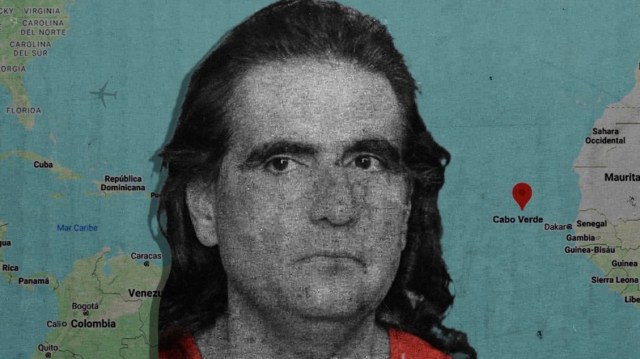
Here’s an extract of last Friday’s Political Risk Report. A Cape Verde-Florida flight brings the Venezuelan conflict back to the old Caracas-Washington feud.
By Caracas Chronicles
Oct 20, 2021
The political horizon in Venezuela changed in a matter of days. The same week the country learned of the death of dissident General Raúl Isaías Baduel in prison, the Financial Times published a leaked report by an EU exploratory mission that warned of the consequences of sending an Electoral Observation Mission (EOM) to Venezuela, and Alex Saab, who’s said to be one of the regime’s main frontmen, was finally extradited to the U.S. There’s a lot to unpack here, so let’s take it one at a time.
The Leak
The leak showed that there may be disgruntled people in Josep Borrell’s office looking to embarrass the EU High Representative for Foreign Affairs and/or undermining the mandate of the EOM. While Borrell – looking to finally make some progress on the Venezuelan issue – might have political reasons to ignore the advice of the exploratory mission, EU bureaucracy at-large is likely more preoccupied than him about the lasting impact on the reputation and credibility of their observation missions. The regime can’t be expected to behave, and – as the report itself warns – will spin the mere presence of the mission and any statement on the legitimacy of the process and its results as a stamp of approval from the EU.
Those in the opposition arguing in favor of deploying the mission regardless of the lack of conditions view this election – which they expect to lose handedly – as a trial run for more consequential elections in the future. They want to build on it, both in terms of voter mobilization and electoral conditions, so that they can get better results and conditions when it matters the most. It’s likely that the regional elections will set a precedent for a future presidential election in terms of the concessions (i.e. better electoral conditions) the government is willing to make on behalf of the opposition. Therefore, the G4’s bet on the electoral route would have been better served by a more contentious negotiation, pushing for the conditions they would want for a presidential election, today. But it’s too late for that, as most opposition parties have already shown their cards: the government knows they will take part in the election – and most likely in all future elections going forward – no matter what.
Enter Saab
What the Maduro regime did as soon as it was confirmed, on Saturday, that a plane of the Department of Justice was crossing the Atlantic Ocean with Saab on board didn’t surprise anyone: the government denounced the extradition as the kidnapping of a Venezuelan diplomat, abandoned the México negotiation, and sent the CITGO-6 back to prison.
Two days later, everyone could see how Maduro’s alleged money man heard the charges against him in a Florida prison, dressed in an orange jumpsuit, after 16 months in Cape Verde.
The events following the Financial Times exposé confirmed the extent to which the Maduro regime can trust in the success of its agenda surrounding the November regional elections. After the government punished Borrell, accusing him of siding with the opposition and after chavismo kicked the negotiation table because of the confirmed extradition of Saab, the electoral board declared that the impasse with the European Union had ended and that the EOM was underway – ten EOM members were already in the country, as the EU envoy reported. This happened on the same day of Saab’s first court appearance (can’t stress this enough).
The opposition parties and individuals taking part in the campaign continued doing so, also confirming that the elections are independent from the negotiations. And Enrique Márquez, an electoral board member representing the opposition, said that the EU mission must go to Venezuela to attest the “real situation of our democracy” and that a European statement against the election would be meddling in Venezuelan affairs: exactly the kind of things that chavismo usually says. Full steam ahead.
The government sent the message that the elections are the priority. The Mexico talks were always expendable, and are out of the picture for the moment. The Norwegian team even left México City after insisting on the negotiations as the only way to solve the Venezuelan political crisis.
What we see here is that not only the regional elections are happening with EU observation, but that the negotiation has been reduced to its essential axis: a face-off between Washington and Caracas, regarding sanctions. Now that the U.S. could increase its leverage on the Maduro regime if Saab makes a deal and shares strategic information – and even more if Hugo “El Pollo” Carvajal is also extradited to the U.S. from Spain, as seems imminent – chavismo launches an immediate defensive attack by abandoning the México talks, showing Saab’s wife in Caracas claiming for his freedom in a government-organized demonstration (which looked more like a proof of life), and taking back the CITGO executives (five of which are U.S. citizens). We can expect that the government won’t release political prisoners in the short term, it will most likely increase its stock to improve its leverage.
…
Read More: Caracas Chronicles – How Saab’s extradition changed the game
…

